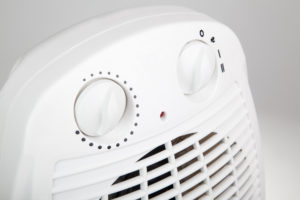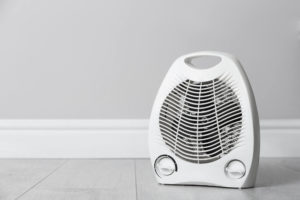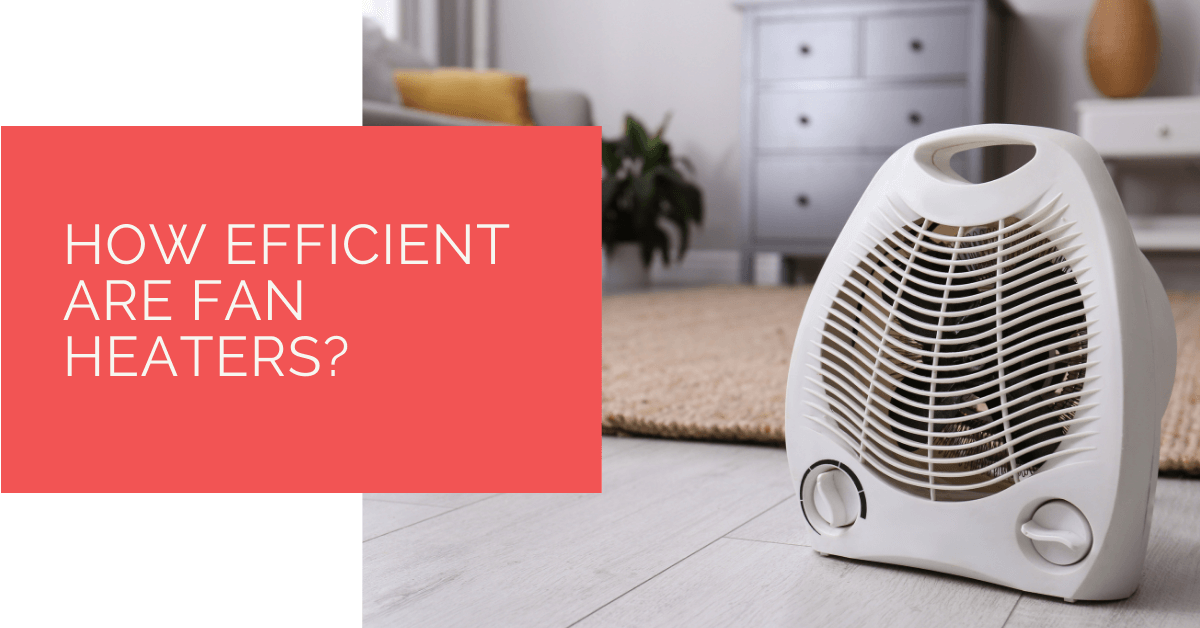Winter months can be harsh across the UK, and the temperatures can drop, freezing low. For such times, it’s great to have a fan heater that can help you heat a particular space of your home quickly and efficiently.
These heaters are portable heating devices and a perfect option to go for if you’re looking for an inexpensive investment.
Since these devices are portable, they’re used alongside a central heating system of your home. However, continuous use of these fan heaters can increase your electricity consumption significantly. This article will give you a brief understanding of how efficient and economical fan heaters are to use.
Contents
Key Takeaways
- Fan heaters are portable and efficient heating devices suitable for heating specific areas or rooms in your home. They work by pulling in surrounding air, warming it electrically, and distributing it using a built-in fan.
- The cost-efficiency of fan heaters varies, with factors like power usage and insulation affecting their operating cost. Electric fan heaters are generally more cost-effective than externally vented heaters.
- Fan heaters have pros like portability and rapid heating but also cons, including energy consumption and noise. Consider factors like energy ratings, temperature settings, and energy-saving features when choosing a fan heater.
How Does a Fan Heater Function?
Fan heaters are great portable heating products that come in handy when heating a specific area or room inside your house. They’re small in size, easily carried around, and ideal for compact spaces.
They are essentially electric hot air fans that you can use for supplementary heating in areas like garages, lobbies, kitchens, etc. They are portable, so they don’t need any installation process.
They work by pulling in the surrounding air and then warming it using electrical resistance, and then distributing it across the room with the help of a built-in fan.
Placing your fan heaters in small, enclosed spaces will give you the best and most effective results. If you put them in larger areas, it could affect their energy efficiency, heating power, and heating rate.
What Is the Cost-Efficiency of Fan Heaters?
Generally, fan heaters use around 1 to 2 kWh of energy. If you run them for an hour, they will cost around 15-30p. Oil-filled radiators are rated less than 1kWh, so they operate slightly cheaper than fan heaters.
As per the Centre for Sustainable Energy, a 2kW fan heater will cost you 28 pence per hour to run making them one of the most efficient products.
Additionally, several other factors affect the cost per hour of a heater. You can adapt to some effective measures like keeping the heat in, insulating and reducing draughts to reduce the energy consumption of your fan heater. Moreover, there are many low-cost solutions like using heavy curtains and blinds that will help keep your bills low.
Here’s how you can calculate the cost of power utilised by your heating device:
Power (in Kilowatt) x Hours of use x Pence per kWh

Types of Fan Heaters
Fan heaters are devices that warm up the room with the help of a fan that pushes air over a heating element like nichrome, resistance foil, etc.
There are two main types of fan heaters.
Electric Fan Heaters
As the name suggests, electric fan heaters draw electricity to operate. The functional properties of these heaters are very simple. The electricity passes through a heating element inside the heater and is transformed into heat energy.
The function of the fan within is to suck in the air from the surrounding areas and push it towards the heating element where it gets warmed up quickly. The warmed-up air is then blown out of the heater and distributed in the room.
Externally Vented Heaters
These non-electric fan heaters use combustion fuel, like gas, kerosene, etc., to operate. The energy source is the only distinguishing factor between electric fan heaters and externally vented fan heaters.
They are not as efficient as electric fan heaters as some heat is always lost in the process and also do not make very efficient solutions in terms of energy consumption as their electric counterparts.
However, the cost of running non-electric fan heaters is lesser than electric heaters.
Ceramic Heaters
Ceramic heaters are a modern innovation of electric heaters that generate heat by passing electricity through ceramic plates. These heaters generally cost more than a fan heater. And like an electric fan heater, they quickly heat your space but cool it down rapidly once the device is switched off. Additionally, they’re much quieter than fan heaters.

Pros and Cons of Fan Heaters
Fan heaters are one of the most innovative inventions providing immediate heating solutions at low costs. They’re inexpensive to purchase and function efficiently for an extended period.
However, they come with their own sets of advantages and disadvantages.
Pros
- Fan heaters are entirely portable and can be carried around anywhere. You are free to move them wherever extra heating is required most.
- They have significant heating power and can quickly heat any small space. They can heat a room to about 20 degrees within minutes.
- There are plenty of designs available for you to choose from. Many modern fan heaters have advanced features like smart fan heaters that make them even more efficient in terms of energy consumption.
Cons
- They can cause accidental fire hazards or mishaps.
- For a small product like electric fan heaters, they consume a lot of energy and power.
- The electric fan causes the heater to make noise while operating. Heaters with modern innovations have less noise created by the fan.
- They aren’t the most energy-efficient product in the market. The space cools down rapidly once the heater is off, and the hot air no longer remains.
What Things to Consider Before Buying a Fan Heater?
Based on your requirements, usage, and needs, you can shortlist and choose from the wide variety of fan heaters available in the market.
Here are some points that you can consider before purchasing an electric heater.
- Make sure you consider the energy ratings on fan heater products. Larger heaters will require more watts and will have larger energy consumption.
- Go for heaters with multiple temperature settings to utilise them in various temperatures.
- It’s better to go for products that trip the device once the desired temperature is achieved. This helps save the energy bill.
Heat Pump Source: Reliable Heating and Cooling Solutions
At Heat Pump Source, we take pride in our unwavering commitment to serving the UK with top-tier HVAC solutions. From the efficiency of heat pumps and the cool relief of air conditioning to the warmth of boilers, radiators, and underfloor heating, our dedicated team is always at the forefront of innovation. We understand the unique needs of every household and business, and we strive to provide dependable health and cooling products and services that are tailored just for you. Ensuring your comfort and satisfaction is our utmost priority. Whether you have questions, need guidance, or require support, we’re always here to assist. Please don’t hesitate to contact us; we’re eager to be of service.
Conclusion
If you’re looking for some immediate relief from the harsh winter temperatures, then electric fan heaters are a perfect choice for you! They are entirely portable and easy for you to place anywhere around the house and enjoy the heat.
There are many options available in the market for you to choose from. Eventually, you should purchase a product that best suits your requirements and preferences.
About the Author
At Heat Pump Source, our articles are the product of a collaborative effort among a team of highly skilled HVAC experts. Our dedicated professionals, hailing from diverse backgrounds in heating, ventilation, air conditioning, and refrigeration, contribute their extensive knowledge and experience to every piece of content. This multidisciplinary approach ensures comprehensive coverage. Our commitment is to deliver authoritative, reliable, and tailored advice to meet the unique needs of every household and business across the UK.

